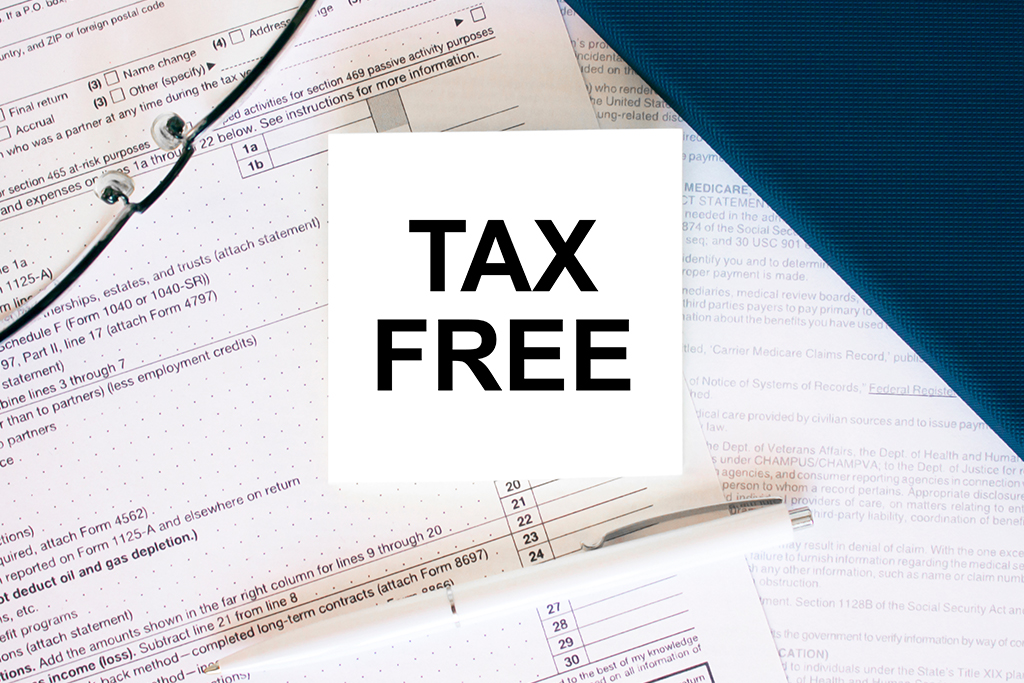In retirement, you will likely have multiple streams of income. Some of these income streams will be taxable, but they don’t all have to be. Ensuring that you have access to after-tax income streams can help reduce your tax bill during your retirement years.
Roth IRA vs. Traditional IRA – What’s the Difference?
Contributing pre-tax dollars to your traditional IRA during your working years is a common practice. Later, when the money is withdrawn and distributed, it is taxed as if it were ordinary income. ROTH IRAs work oppositely. ROTH IRAs are funded with money that has already been taxed so that future qualified withdrawals can be distributed tax-free. [1]
So, You Don’t Have a Roth IRA…
Households with certain income levels cannot contribute funds directly to a ROTH IRA account. This includes individuals making more than $144,000 and couples, filing jointly, making more than $214,000. For households that are eligible for direct ROTH IRA contributions, yearly limits on the amounts are imposed. Eligible individuals can contribute up to $6,000 per year if under the age of 50 and $7,000 per year if over the age of 50. Anyone, however, can convert a traditional IRA of any amount into a ROTH IRA, regardless of their income.
Keep in mind that the conversion from a traditional IRA to a ROTH IRA cannot be undone and that the money cannot be withdrawn without penalties for the first 5 years after conversion and until the age of 59.5 has been reached. [2]
Got HSA?
Health Savings Accounts are not available to all, but if available through your employer, opening one could be a great option. The funds added to an HSA account are tax-deferred, which means the growth on the account is tax-deferred as well. When qualified medical expenses arise, money can be withdrawn from the HSA account and remain TAX-FREE, meaning income put into your HSA account can be utilized without incurring any taxes when applied to medical care.
Keep in mind that if HSA funds are used for non-medical expenses before the age of 65, a 20% penalty will be applied. After 65, non-medical expenses will only be taxed. Examples of qualifying medical expenses include Medicare Advantage and Part B plans, part of long-term care insurance premiums, vision, and dental care. [3]
Unexpected taxes can be a damper on your retirement. Regardless of your tax-based knowledge, working with a financial planner to create a strategy that can help minimize your long-term tax burden can strengthen your peace of mind and further preserve your investments. To schedule a complimentary financial review with Moore’s Wealth Management, click here or call our office at 770-535-5000, where a staff member is awaiting your call Monday through Friday, 9 AM to 5 PM.
All information contained herein is derived from sources deemed to be reliable, but cannot be guaranteed. This material is provided as a courtesy and for educational purposes only. This material is provided as a courtesy and for educational purposes only.
The views expressed herein are those of the author and do not necessarily reflect the views of Steward Partners or its affiliates. All opinions are subject to change without notice. Neither the information provided nor any opinion expressed constitutes a solicitation for the purchase or sale of any security. Past performance is no guarantee of future results.
Individuals are encouraged to consult their tax and legal advisors (a) before establishing or changing a Retirement Account or Retirement Plan, and (b) regarding any potential tax, ERISA, and related consequences of any investments or other transactions made with respect to a Retirement Account or Retirement Plan. Tax laws are complex and subject to change.
Conversions from IRA to Roth may not be suitable for everyone. Withdrawals are subject to ordinary income tax and prior to age 59 ½, may be subject to a 10% federal tax penalty. Roth IRA conversions require a 5-year holding period before earnings can be withdrawn tax-free, and subsequent conversions will require their 5-year holding period. Converting a traditional IRA into a Roth IRA has tax implications. Investors should consult a tax advisor before deciding to complete a conversion.
Steward Partners, its affiliates, and its Financial Advisors do not offer tax or legal advice. The tax information contained herein is general and is not exhaustive by nature. Federal and state laws are complex and constantly changing. You should always consult your own legal or tax professional for information concerning your individual situation.


